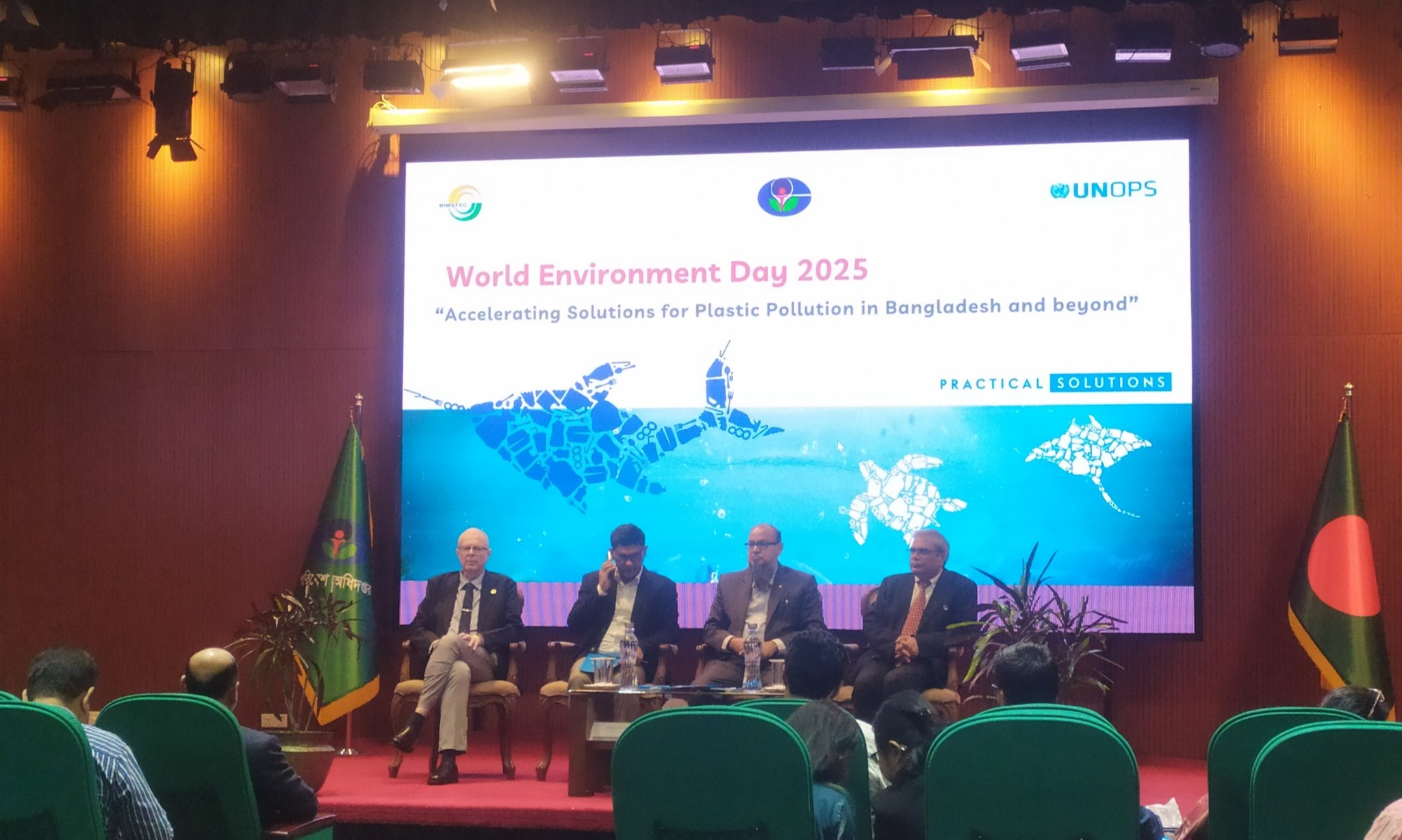Diplomatic Correspondent
Published:2025-07-11 06:59:39 BdST
Overhauling waste management vital to address plastic pollution: Experts
Experts at a high-level seminar on Thursday stressed the urgent need to overhaul Bangladesh’s waste management system to tackle the escalating plastic pollution crisis, with over 87,000 tonnes of plastic waste entering the country's marine ecosystems annually.
The seminar reaffirmed Bangladesh’s commitment to its National Action Plan for Sustainable Plastic Management (2020–2030), which aims to reduce plastic waste by 30%, recycle 50%, and eliminate 90% of targeted single-use plastics by 2026.
The Department of Environment (DoE), in collaboration with the United Nations Office for Project Services (UNOPS) and the Bay of Bengal Initiative for Multi-Sectoral Technical and Economic Cooperation (BIMSTEC), organised the seminar titled “Accelerating Solutions for Plastic Pollution in Bangladesh”.
The event, held at the DoE office in the capital’s Agargaon area, aligned with the theme of World Environment Day 2025.
Speaking at the seminar, BIMSTEC Secretary-General Indra Mani Pandey highlighted the shared nature of plastic pollution as a global and regional threat. “BIMSTEC stands ready to deepen regional cooperation to create a plastic-smart Bay of Bengal,” he stated.
Secretary of the Ministry of Industries Md Obaidur Rahman highlighted the need to embed sustainability at all levels of industrial development.
“This seminar is a significant step toward integrating environmental responsibility into our industrial transformation,” he said.
Chairing the session, DoE Director General Dr Md Kamruzzaman reaffirmed the department’s commitment to implementing the national plastic action plan through innovation, accountability, and inclusive collaboration.
UNOPS Country Manager for Bangladesh and Bhutan, Sudhir Muralidharan, stressed that plastic pollution extends beyond environmental damage—it is also an infrastructure and behavioural issue.
“UNOPS is committed to supporting Bangladesh with scalable solutions and regional partnerships to translate bold targets into measurable impact,” he added.
Other notable speakers included ESDO Secretary General Dr Shahriar Hossain, DoE Deputy Director (Waste and Chemical Management) Dr Abdullah Al Mamun, journalist Iftekhar Mahmud, and Unilever Head of Procurement Dilruba Ahmed.
Discussions at the seminar focused on innovative financing models, behavioural change strategies, and the role of media in raising public awareness. Speakers also shared insights on national policy implementation and innovation in the petrochemical industry to tackle plastic pollution effectively.
Unauthorized use or reproduction of The Finance Today content for commercial purposes is strictly prohibited.


